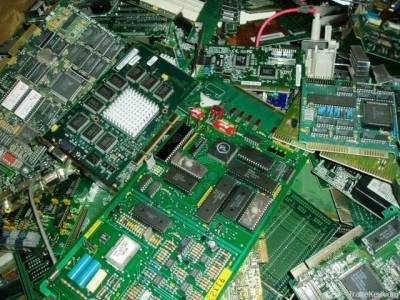Description
Electronic Scrap: A Valuable Resource for Recycling and Recovery
Electronic scrap, also known as e-waste, encompasses a wide range of discarded electronic devices and components. This includes, but is not limited to:
- Computers & Peripherals: Desktops, laptops, tablets, monitors, keyboards, mice, printers, scanners.
- Mobile Devices: Smartphones, cell phones, MP3 players, smartwatches.
- Consumer Electronics: Televisions (CRT, LCD, LED, Plasma), VCRs, DVD players, stereos, gaming consoles.
- White Goods: Refrigerators, washing machines, dryers (often included in e-waste collections depending on the program).
- Industrial Electronics: Circuit boards, servers, networking equipment, industrial control systems.
Why Recycle Electronic Scrap?
Electronic scrap is not just trash; it's a valuable resource containing precious metals like gold, silver, platinum, and palladium, as well as various other recyclable materials including plastics, glass, and ferrous and non-ferrous metals. Improper disposal of e-waste leads to:
- Environmental Pollution: Harmful substances like lead, mercury, and cadmium can leach into soil and water, contaminating ecosystems and harming human health.
- Resource Depletion: Mining for new materials to manufacture electronics is resource-intensive and environmentally damaging. Recycling conserves these resources.
- Health Risks: Improper handling of e-waste exposes workers and communities to hazardous materials.
Types of Electronic Scrap:
Electronic scrap can be categorized by its condition and potential for reuse:
- Working: Devices that are still functional but are no longer needed. These can be refurbished and resold, extending their lifespan.
- Non-Working: Devices that are broken or no longer function properly. These often contain valuable recyclable materials.
- Components: Individual parts such as circuit boards, hard drives, memory chips, and batteries. These can be disassembled and their materials recovered.
Responsible E-waste Management:
Responsible management of electronic scrap involves proper collection, transportation, and processing. This often includes:
- Data Security: Sensitive data should be securely erased from hard drives and other storage devices before disposal.
- Safe Handling: E-waste should be handled with care to prevent exposure to hazardous materials.
- Certified Recyclers: Choosing a certified e-waste recycler ensures that materials are processed responsibly and in compliance with environmental regulations.
Benefits of Recycling Electronic Scrap:
- Environmental Protection: Reduces pollution and conserves natural resources.
- Economic Benefits: Creates jobs in the recycling industry and recovers valuable materials.
- Resource Conservation: Reduces the demand for new raw materials.
- Social Responsibility: Promotes sustainable practices and reduces environmental impact.
By responsibly recycling your electronic scrap, you contribute to a healthier planet and a more sustainable future. Choose a reputable recycler and do your part to reduce e-waste.
